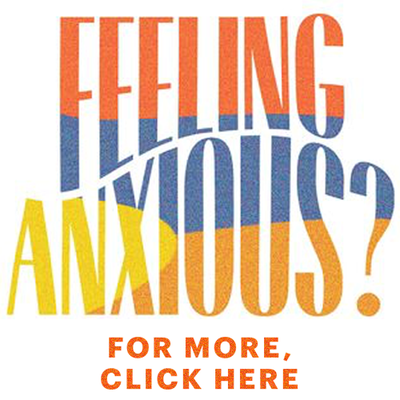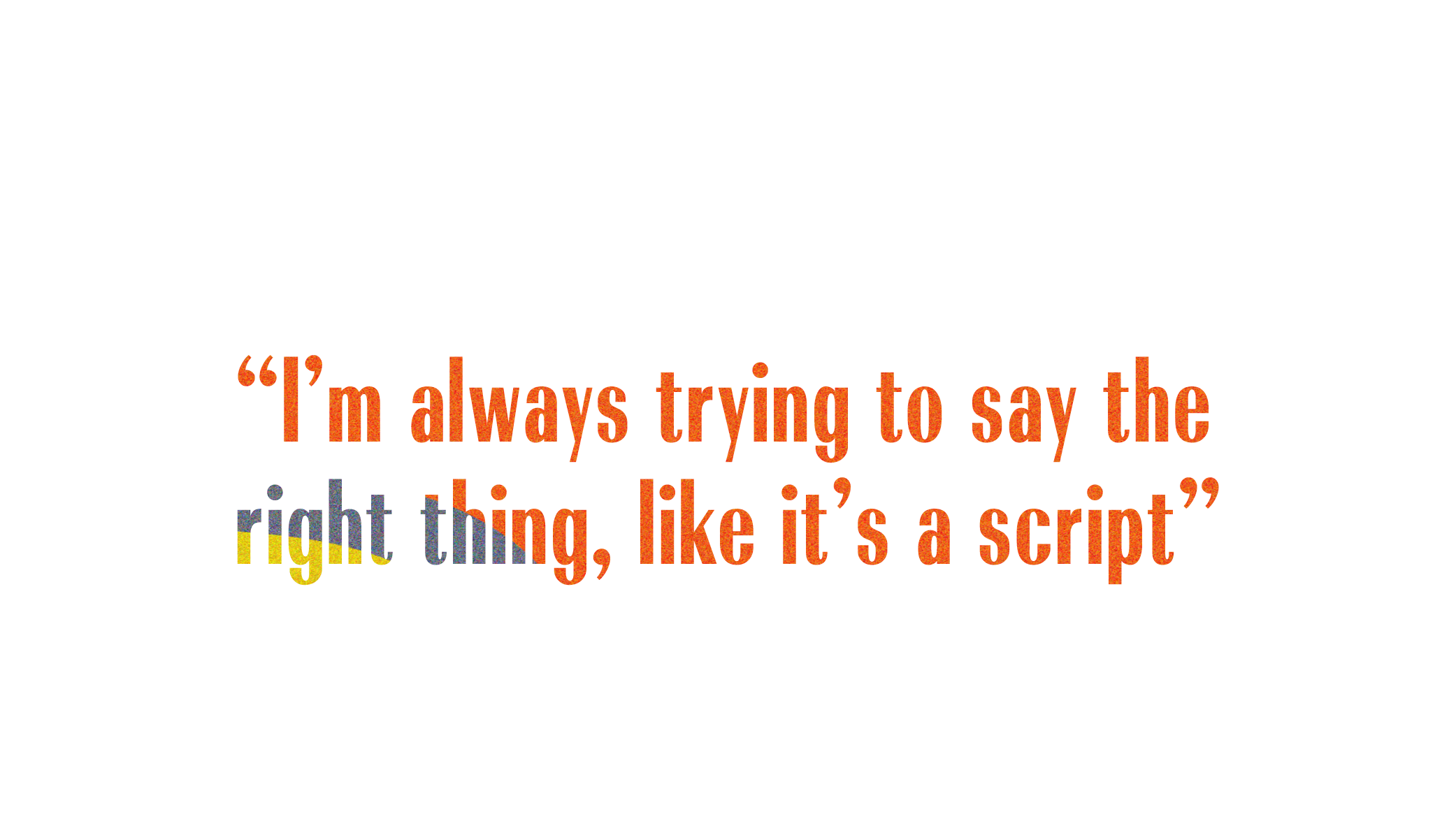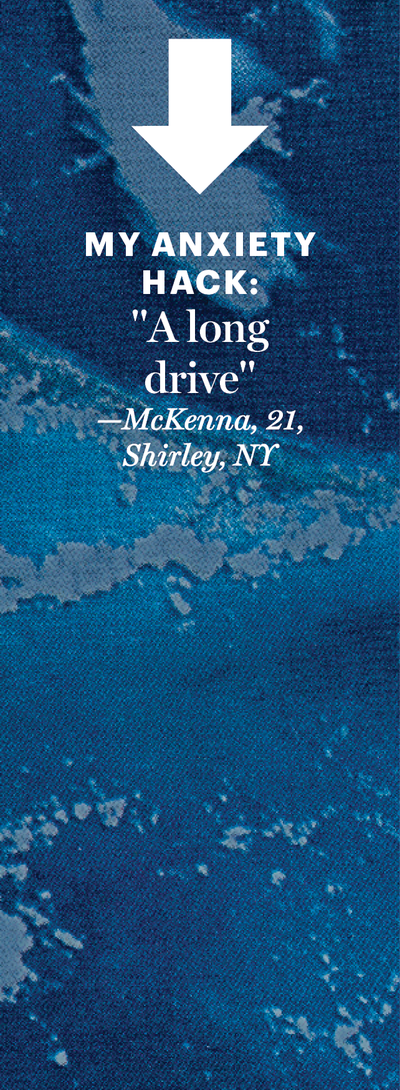How to Discuss Anxiety
Discussing mental illness isn’t easy. Two sisters—one with anxiety, one without—talk about how they manage.

My younger sister, Caroline, was diagnosed with severe anxiety six years ago, and learning how to talk about it was hard. We wanted to have meaningful conversations that felt like us, not like we were reading from a Full House script. So, we developed our own language—no empty “I’m feeling fine” comments allowed. Supportive but not earnest. Safe, not censored. We talk about breakdowns like we do reality TV: with candor and humor. Here, we discuss how anxiety has impacted our relationship and the power of a joke made out of love.

Megan DiTrolio: How are you feeling today?
Caroline DiTrolio: Terrified. And anxious for this interview. I haven’t taken my Prozac yet.
MD: Can you explain what your anxiety feels like?
CD: It’s like when you’re walking down the stairs and you miss a step, that’s how I feel when a waiter asks for my order. I’m obsessive about other people’s perceptions. I’m always trying to say the right thing, like it’s a script. I overanalyze every interaction that I have with strangers and my family. It’s exhausting.
MD: When you were diagnosed, we didn’t talk about it. Why?
CD: I felt a lot of shame. We’d never had a candid discussion about mental health in our family before, so I felt like it wasn’t appropriate to talk about. I wanted to pretend it didn’t exist.
Stay In The Know
Get exclusive access to fashion and beauty trends, hot-off-the-press celebrity news, and more.
MD: Now we often joke about your anxiety. You tell me, “I can’t go out to dinner because of my crippling anxiety,” and I say, “Put some pants on and let’s go.” And then, over a cheese quesadilla, we talk through your day. The joke is a way for us to start a dialogue. Why does that work for us?

CD: It helps me to laugh about it. I make jokes when I feel uncomfortable, especially about stigmatized things like medication. It’s my way of making something not so fun into something that we can connect over. To be clear: We’re never making fun of mental illness; we’re using humor to loosen up and start a candid conversation. Do I ever make you feel uncomfortable?
MD: Sometimes. I’m not always sure what’s okay for me to joke about and what isn’t.
CD: Honestly, it’s trial and error, which isn’t really fair to you. You’re not a mind reader, so it’s hard to know what’s going to make me laugh and what’s going to trigger me.
MD: It’s all about interpreting what you need—whether it’s a laugh or a heart-to-heart. Even though it can be difficult to find the line, starting with a joke breaks the ice to let us have a constructive discussion. It has made us closer as sisters.
CD: I agree. Anxiety was the elephant in the room; we had to talk about it. It had to become part of our relationship. I know that it’s affected you as well. Did you ever feel like your own struggles were overlooked because mine had a diagnostic label?

MD: There were times when I was really stressed and I wouldn’t want to bring it up because I didn’t want to weigh you down. And times when I didn’t want to share my successes because you were going through something.
CD: I’m sorry you felt that way. You should always share your successes because they make me happy.
MD: I don’t feel that way anymore because our relationship is so much stronger. I mean, we got tattoos to battle the illness together. And Mom and Dad almost had a heart attack. You’ve gotten another once since, right?
CD: Yes, I wanted a reminder that recovery is a process. It’s of a butterfly, and in the mental-illness community, that represents recovery.
MD: Do Mom and Dad know about it?
CD: No…
MD: Well, I’ll always support you and have your back, but I’d like this on the record: Mom, Dad, I had nothing to do with it.
This article appears in the July 2019 issue of Marie Claire.
RELATED STORY

Megan DiTrolio is the editor of features and special projects at Marie Claire, where she oversees all career coverage and writes and edits stories on women’s issues, politics, cultural trends, and more. In addition to editing feature stories, she programs Marie Claire’s annual Power Trip conference and Marie Claire’s Getting Down To Business Instagram Live franchise.